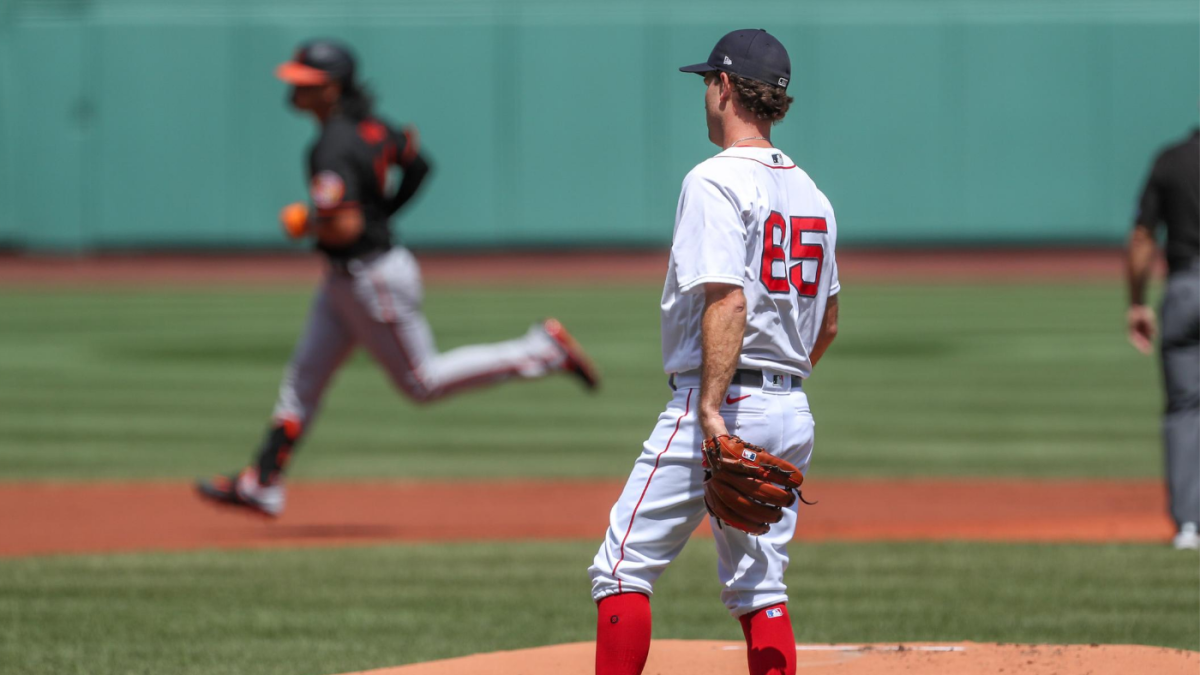
The Boston Red Sox lost 5-1 to the New York Yankees on Friday night in what was the first game between the teams this season. With the defeat, the Red Sox dropped to 3-5 and into last place in the American League East. It's early, and the uneven amount of games played by others because of COVID-19-related postponements makes it more difficult to compare teams than normal. Still, the Red Sox are in a bad spot, and they have their biggest weakness to blame: the (predictably) abysmal rotation they assembled over the winter and spring.
How bad has the Red Sox rotation been? Coming into Saturday, their starting unit ranks 27th in ERA, 29th in average game score, and 30th in strikeouts per nine innings. In so many words, they aren't preventing runs from being scored, they aren't striking out anyone, and those results are not being skewed by a stinker here or there.
Ryan Weber authored the latest poor start for Boston on Friday night. Through two outings now, he's yet to strike out a single batter. He has, however, permitted nine runs on 10 hits (four homers) and seven walks in seven innings. To think, he wasn't the first one removed from the rotation -- that distinction belongs to Matt Hall, who, in 34 career innings, now has a 9.53 ERA. Zack Godley replaced Hall, and while he's been an effective big-league starter in the past, "the past" came more than 270 innings ago; in the interim period, he's posted an 83 ERA+.
Nathan Eovaldi and Martin Perez are the closest thing the Red Sox have to reliable starters. Eovaldi has a 2.45 ERA and four strikeouts per walk in two starts, but his under-the-hood metrics suggest he's allowing a lot of quality contact without missing many bats -- a combination that doesn't bode well for him being more than a mid-to-back-end starter type when all is said and done. As for Perez, his admittedly small-sample statline includes a lot of fives: as in a 5.06 ERA, 5.91 strikeouts per nine, and 5.06 walks per nine. He's on his third team in three years.
Is it any wonder why Boston's hitters have expressed frustration already about how many runs they have to score in order to remain competitive? "We proved that we can come back. We're capable of doing that," shortstop Xander Bogaerts told Chris Cotillo of MassLive.com last week, "But if you've got to score eight, nine or 10 runs every game, honestly it's a little tough."
Unfortunately for Bogaerts and company, they're going to have to continue to score runs by the bunches in order to win games if the season continues. Take a look at Boston's next five series (keep in mind, they have two more games against the Yankees this weekend):
- 2 games at the Rays;
- 3 games versus the Blue Jays;
- 4 games versus the Rays;
- 4 games at the Yankees;
- 2 games versus the Phillies.
That's 15 games, and at least 12 of them come against serious contenders. Even the Blue Jays have the potential to put the hurt on an opposing pitching staff. Good luck.
The Red Sox can (and likely will) blame the state of their rotation on health issues: Chris Sale is out for the season after undergoing Tommy John surgery during the spring. And on a far more concerning note given MLB's attempt at playing through the pandemic, Eduardo Rodriguez will miss the year, the team announced Saturday, after developing heart inflammation following his bout with COVID-19.
It almost doesn't matter how the Red Sox got to this point with their rotation. What matters is that they might have the worst starting five in baseball, and that the bunch has a chance to leave them playing for draft position later in the season.
Sports - Latest - Google News
August 02, 2020 at 04:38AM
https://ift.tt/3k0WfIQ
How the Red Sox rotation is already proving to be one of the worst in baseball - CBS Sports
Sports - Latest - Google News
https://ift.tt/2Mbsnt7
Bagikan Berita Ini














0 Response to "How the Red Sox rotation is already proving to be one of the worst in baseball - CBS Sports"
Post a Comment